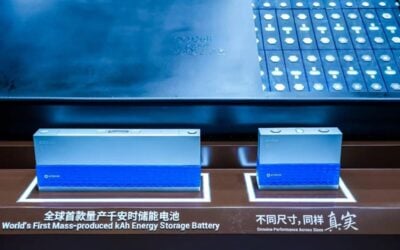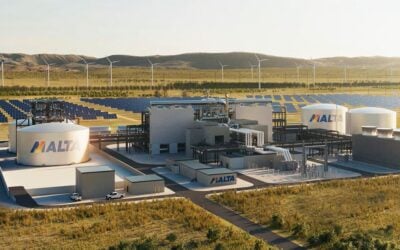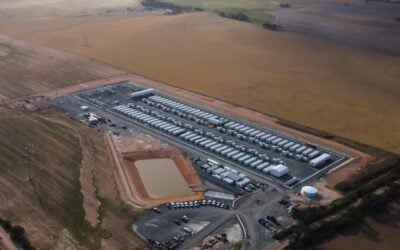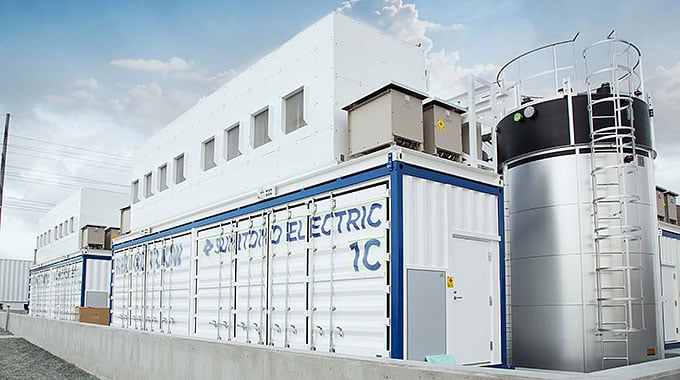
Sumitomo Electric will supply an 8-hour duration vanadium redox flow battery (VRFB) to a recently-established municipal power company in Niigata, Japan.
Japanese engineering, materials and professional services group Sumitomo Electric said this morning that it has received an order for a 1MW/8MWh VRFB energy storage system from Kashiwazaki Ideal & Realistic Energy (Kashiwazaki IR).
Enjoy 12 months of exclusive analysis
- Regular insight and analysis of the industry’s biggest developments
- In-depth interviews with the industry’s leading figures
- Annual digital subscription to the PV Tech Power journal
- Discounts on Solar Media’s portfolio of events, in-person and virtual
The long-duration energy storage (LDES) system will be installed at the site of a public sewage treatment plant in Kashiwazaki City in Niigata Prefecture. The city is located on the northern Japan sea coastal side of Honshu, about a four hour drive from Tokyo.
The city, a traditional home to petroleum refining and nuclear power industries, is pursuing a decarbonisation agenda focused on renewable energy and nuclear, to which it is seeking to add energy storage resources.
The flow battery installation will help integrate variable renewable energy (VRE) generation onto the grid while helping stabilise operation of the network. At the same time, it will promote municipal goals of increasing Kashiwazaki’s local energy self-sufficiency and supporting industrial growth.
The project is scheduled to enter commercial operation in March 2024.
Opening up of market for BESS participation
The VRFB will perform those roles via participation in Japan’s wholesale energy trading markets. That’s a recent opportunity that has opened up this year for energy storage systems as regulations changed to accommodate their market entry.
A few months ago, for example, solar developer Pacifico Energy became the first to put battery energy storage system (BESS) assets into the JPEX spot market. Pacifico Energy’s two lithium-ion BESS units, each of 2MW/8MWh and at opposite ends of the country geographically, entered the trading space in June.
The developer is the first mover, but is far from alone in spying the opportunity ahead. Japan’s biggest petroleum producer, Idemitsu Kosan announced its first grid-scale BESS project a few weeks ago, while a joint venture (JV) formed by Chinese battery maker CATL said this month that construction was beginning on a BESS project, with equipment supplied by Hitachi Energy.
In an exclusive interview with Energy-Storage.news this summer, Pacifico Energy head of energy storage Mahdi Behrangrad said the business case is strongest for standalone BESS assets in Japan with at least 3-hour duration. That enables them to capture the best spread of wholesale prices, and also participate in upcoming capacity market opportunities.
That appears to be a motivating factor behind Kashiwazaki IR’s choice of technology and duration in placing its VRFB order with Sumitomo Electric. A market precedent of sorts was perhaps set in July when utility company Sala Energy ordered a 6-hour duration 69.6MWh sodium-sulfur (NAS) high temperature battery storage system from manufacturer NGK Insulators.
Kashiwazaki IR was established last year and began electricity sales in September 2022. It has been formed by Kashiwazaki City together with eight private companies that include petroleum-focused energy company INPEX, energy services provider Pacific Power Co, Japan Petroleum Exploration Co and others including banks.
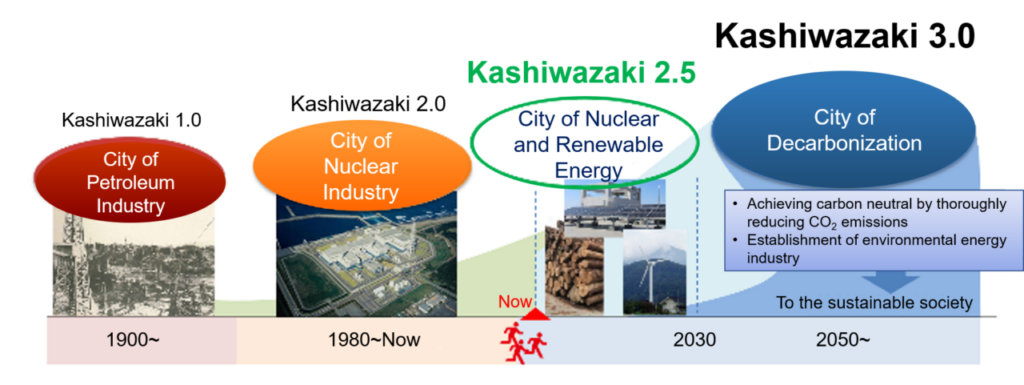
Pacific Power, which works with different local governments and private companies to develop electricity supply and market-facing offerings, registered mid-2022 with Japan’s Ministry of Economy, Trade and Industry (METI) to provide wholesale market aggregation services and capacity market bidding.
Meanwhile, Sumitomo Electric is one of the longest-established and biggest global suppliers of the nascent VRFB technology, having to date delivered around 47MW/162MWh worldwide. It completed the world’s biggest flow battery (at the time) at 60MWh in northern Japan in 2015, is working on another of 51MWh, and supplied what is currently still the US’ biggest VRFB, a 2MW/8MWh system in California.
However, most of the projects it has supplied, many of them pilots and demonstration units, have been much shorter durations than the Kashiwazaki project, making this perhaps an ideal opportunity for the company to showcase the LDES capabilities of its technology.



